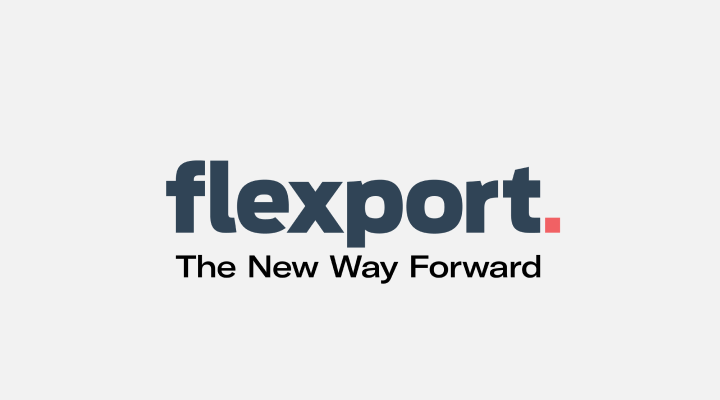Flexport is a technology-driven freight forwarding and logistics startup that is revolutionizing the global shipping and supply chain industry. Established in 2013 by Ryan Petersen, Flexport has rapidly emerged as a key player in the logistics space, offering innovative solutions to streamline and optimize international trade operations. With its digital platform, data-driven approach, and commitment to transparency, Flexport is reshaping how businesses navigate the complexities of global shipping and supply chain management.
Flexport was founded with a mission to simplify global trade and make it more accessible and efficient for businesses of all sizes. Recognizing the numerous pain points and inefficiencies in traditional freight forwarding, CEO Ryan Petersen sought to leverage technology to bring transparency, visibility, and control to the shipping process. Petersen, a seasoned entrepreneur with a background in logistics and international trade, envisioned a platform that would empower businesses to manage their logistics seamlessly while providing real-time insights and data-driven solutions.
The company’s digital platform serves as a centralized hub that connects businesses, carriers, suppliers, and other stakeholders involved in the global supply chain. By digitizing and automating key processes, such as booking shipments, managing documentation, tracking shipments, and facilitating communications, Flexport simplifies complex logistics operations and enables businesses to streamline their supply chain activities.
Flexport’s technological innovation extends beyond its platform. The company leverages advanced analytics and machine learning algorithms to extract valuable insights from vast amounts of shipping and trade data. These data-driven insights help businesses optimize their supply chain operations, identify cost-saving opportunities, and make informed decisions about their global trade strategies. By harnessing the power of data and technology, Flexport provides businesses with the visibility and control necessary to navigate the complexities of international trade in a rapidly changing global landscape.
In addition to its cutting-edge technology, Flexport distinguishes itself through its commitment to transparency and customer-centric approach. The company prioritizes open communication and collaboration with its clients, aiming to build strong partnerships and deliver tailored solutions to meet their unique logistics needs. Flexport’s team of logistics experts and customer support professionals work closely with clients, providing guidance, expertise, and personalized assistance throughout the shipping process.
Flexport has experienced significant growth since its inception, attracting a diverse client base that includes both small businesses and large multinational corporations. The company has also secured substantial investments from prominent venture capital firms, reflecting the confidence in its disruptive business model and market potential.
As the global economy continues to become more interconnected, the need for efficient and transparent supply chain solutions becomes increasingly critical. Flexport’s innovative approach to freight forwarding and logistics, driven by technology, data analytics, and a customer-centric mindset, positions it at the forefront of the industry. By reshaping traditional practices and embracing digital transformation, Flexport is empowering businesses to navigate the complexities of global trade with greater efficiency, transparency, and control.
Founding History and Founders of Flexport
The founding story of Flexport revolves around its visionary founder, Ryan Petersen, and his mission to transform the global shipping and logistics industry.
Ryan Petersen, the CEO and founder of Flexport, has a deep background in logistics and international trade. Born and raised in the San Francisco Bay Area, Petersen developed a fascination for global trade at a young age. He gained early exposure to the complexities of the shipping industry while working at his family’s freight forwarding business, where he witnessed firsthand the challenges faced by businesses in managing their global supply chains.

Petersen’s entrepreneurial drive led him to start his own businesses even before he finished high school. He dabbled in various ventures, including importing products from China and selling them online. These early experiences exposed him to the intricacies of international logistics and the inefficiencies that hindered smooth trade operations.
The Genesis of Flexport
In 2013, Ryan Petersen embarked on a mission to revolutionize the traditional freight forwarding and logistics industry by leveraging technology and data. He believed that the industry was ripe for disruption, with outdated processes, limited visibility, and a lack of transparency hindering businesses’ ability to manage their global supply chains effectively.
With this vision in mind, Petersen founded Flexport as a modern digital freight forwarding company. He aimed to create a platform that would empower businesses of all sizes to navigate the complexities of global trade more efficiently, transparently, and cost-effectively.
Petersen initially operated Flexport from his own apartment, assembling a small team of industry experts and technologists who shared his vision for transforming the logistics industry. The team worked tirelessly to build a platform that would automate and digitize key logistics processes, provide real-time visibility, and offer data-driven insights to clients.
Flexport gained early traction by providing value-added services and leveraging its technology to simplify logistics operations for clients. The company’s customer-centric approach, focus on transparency, and dedication to solving the pain points of global trade quickly attracted attention and helped establish Flexport as a disruptor in the industry.
While Ryan Petersen is the driving force behind Flexport, the company’s success is also attributed to the contributions of its talented founding team and key executives. Notable individuals who played significant roles in shaping Flexport include Sanne Mander who joined Flexport as its Chief Operating Officer (COO) and is responsible for overseeing the company’s operations and growth. His expertise in logistics and his deep understanding of the industry have been instrumental in shaping Flexport’s strategy and driving its expansion.
Since its founding, Flexport has experienced significant growth and success. The company has secured substantial investments from renowned venture capital firms, including Founders Fund, DST Global, and SoftBank Vision Fund, among others. These investments have provided Flexport with the resources to fuel its expansion, invest in technology, and attract top talent.
Flexport’s disruptive approach to logistics has garnered recognition and accolades within the industry. The company has been named as one of the World’s Most Innovative Companies by Fast Company and has received numerous other awards for its innovative business model and technological advancements.
The founding story and the founders of Flexport exemplify the entrepreneurial spirit and the drive to transform an industry plagued by inefficiencies. Ryan Petersen’s vision, coupled with the expertise and dedication of the founding team, has propelled Flexport to become a leading player in the global shipping and logistics space. With its innovative digital platform, commitment to transparency, and customer-centric approach, Flexport continues to shape the future of global trade and revolutionize how businesses manage their supply chains.
Products and Features of Flexport
Flexport offers a range of products and features that empower businesses to streamline their global supply chain operations, gain visibility, and make informed decisions. Let’s explore the key products and features offered by Flexport:
Digital Freight Forwarding Platform: At the core of Flexport’s offerings is its digital freight forwarding platform. This web-based platform serves as a centralized hub that enables businesses to manage their international shipments and logistics operations efficiently. Users can access the platform through a web browser or mobile application, providing them with real-time visibility into their supply chain.
Shipment Management: Flexport’s platform allows businesses to easily manage their shipments from end to end. Users can initiate and track shipments, access documentation, and receive updates on the status of their cargo. The platform streamlines the entire logistics process, including booking shipments, coordinating with carriers, managing customs documentation, and tracking the movement of goods.
Customs Compliance and Documentation: Navigating customs regulations and ensuring compliance can be complex and time-consuming. Flexport simplifies this process by providing comprehensive customs compliance features and generating the necessary documentation. The platform automates customs filings, facilitates communication with customs authorities, and ensures adherence to regulatory requirements, reducing the risk of delays or penalties.
Freight Consolidation: Flexport’s platform enables businesses to optimize their shipping costs through freight consolidation. By aggregating shipments from multiple clients, Flexport can negotiate competitive rates with carriers and pass on the cost savings to its customers. This feature is particularly beneficial for small and medium-sized businesses that may not have the volume to negotiate favorable shipping rates on their own.
Supply Chain Visibility and Analytics: Flexport places a strong emphasis on providing data-driven insights and supply chain visibility to its customers. Through its platform, businesses can access real-time tracking of their shipments, monitor inventory levels, and analyze key performance indicators (KPIs) related to their supply chain operations. These analytics enable businesses to identify bottlenecks, optimize routes, and make data-informed decisions to enhance efficiency.
Supplier and Vendor Management: Managing relationships with suppliers and vendors is crucial for successful supply chain management. Flexport’s platform facilitates collaboration and communication with suppliers and vendors, streamlining the procurement process. Businesses can easily request quotes, coordinate shipments, and track supplier performance, fostering seamless integration and transparency across the supply chain.
Freight Insurance and Risk Mitigation: Flexport offers comprehensive freight insurance options to protect businesses against potential losses or damages during transit. The platform provides customizable insurance coverage options based on the specific needs and risk profile of each shipment. By offering insurance services, Flexport provides added peace of mind to its customers and helps mitigate financial risks associated with global shipping.
Regulatory Compliance and Trade Compliance Consulting: Navigating complex trade regulations and ensuring compliance is a critical aspect of international logistics. Flexport provides regulatory compliance and trade compliance consulting services to help businesses stay up-to-date with changing regulations and requirements. Their team of experts offers guidance on trade compliance best practices, tariff classifications, and country-specific regulations to ensure smooth operations and minimize compliance-related risks.
Flexport’s products and features are designed to simplify and optimize global supply chain management. By leveraging advanced technology, data analytics, and a customer-centric approach, Flexport empowers businesses to navigate the complexities of international trade with greater visibility, control, and efficiency.
Business Model of Flexport
Flexport operates on a digital freight forwarding and logistics business model that combines technology, data analytics, and personalized service to provide streamlined solutions for global supply chain management. Let’s explore the key elements of Flexport’s business model:
Technology-Driven Platform: At the heart of Flexport’s business model is its digital platform. The platform serves as a central hub that connects businesses, carriers, suppliers, and other stakeholders in the global supply chain. Through this platform, customers can manage their logistics operations, access real-time data, collaborate with partners, and gain visibility into their shipments.
End-to-End Service Offering: Flexport offers a comprehensive range of services that cover the entire logistics journey, from the initial booking of shipments to the final delivery. This end-to-end approach sets Flexport apart from traditional freight forwarders and allows customers to have a single point of contact for all their logistics needs. Services provided by Flexport include freight forwarding, customs clearance, documentation management, insurance, and more.
Data-Driven Insights: Flexport leverages advanced data analytics and machine learning algorithms to extract valuable insights from the vast amount of shipping and trade data it collects. By analyzing this data, Flexport can identify patterns, optimize routes, suggest cost-saving measures, and provide actionable recommendations to customers. These data-driven insights enable businesses to make informed decisions, improve supply chain efficiency, and reduce costs.
Freight Consolidation and Negotiated Rates: Flexport employs a freight consolidation strategy to optimize shipping costs for its customers. By aggregating shipments from multiple clients, Flexport can negotiate favorable rates with carriers and pass on the cost savings to its customers. This approach benefits businesses, particularly small and medium-sized enterprises, by providing them with access to competitive shipping rates that they may not be able to negotiate on their own.
Transparent Pricing: Flexport’s business model emphasizes transparency in pricing. Instead of relying on traditional opaque pricing models used in the freight forwarding industry, Flexport provides clear and itemized pricing structures. Customers can easily understand the breakdown of costs, including freight charges, customs fees, insurance premiums, and other expenses. This transparent pricing approach fosters trust and helps businesses accurately budget and forecast their logistics expenses.
Customer-Centric Approach: Flexport prioritizes the needs and requirements of its customers. The company emphasizes building strong partnerships and providing personalized service to meet individual customer needs. Flexport’s team of logistics experts and customer support professionals work closely with clients, offering guidance, proactive communication, and assistance throughout the shipping process. This customer-centric approach sets Flexport apart and creates long-term value for its clients.
Strategic Partnerships: Flexport has established strategic partnerships with various industry players, including carriers, customs brokers, and technology providers. These partnerships enhance Flexport’s service offerings, expand its network, and allow for seamless integration with other platforms and systems. By leveraging these partnerships, Flexport can provide end-to-end solutions and deliver exceptional value to its customers.
Overall, Flexport’s business model revolves around combining technology, data-driven insights, transparency, and personalized service to disrupt the traditional freight forwarding and logistics industry. By offering a comprehensive platform, optimizing shipping costs, providing actionable insights, and prioritizing customer satisfaction, Flexport is transforming the way businesses manage their global supply chains and navigate the complexities of international trade.
Revenue Streams of Flexport
Flexport generates revenue through various streams within its business model. Here are the key revenue streams of Flexport:
Freight Forwarding Fees: A significant portion of Flexport’s revenue comes from freight forwarding fees charged to customers for managing their shipments. These fees are typically based on factors such as the volume, weight, and destination of the shipments. Flexport offers competitive pricing and leverages its network and negotiation power to provide cost-effective freight forwarding services to its customers.
Value-Added Services: Flexport offers value-added services that go beyond standard freight forwarding, and these services contribute to its revenue streams. These services may include customs clearance, documentation management, insurance coverage, trade compliance consulting, and other specialized services based on customer requirements. Flexport charges fees for these additional services, providing an additional revenue stream.
Technology Platform Fees: Flexport’s digital platform serves as a central hub for managing logistics operations. While access to the platform is free, Flexport offers premium features and functionalities to customers through subscription-based models. These features may include advanced analytics, real-time tracking, supply chain visibility tools, and customized reporting. Customers can opt for higher-tier subscriptions, generating revenue for Flexport.
Insurance Services: Flexport provides insurance coverage for shipments, protecting businesses against potential losses or damages during transit. The insurance premiums paid by customers contribute to Flexport’s revenue stream. Flexport collaborates with insurance providers to offer tailored insurance solutions based on the value and risk profile of the shipments.
Ancillary Services: In addition to its core offerings, Flexport may generate revenue from ancillary services. These services may include warehousing, fulfillment, inventory management, and distribution services. Flexport leverages its logistics expertise and partnerships to provide comprehensive end-to-end solutions to its customers, generating additional revenue streams.
Strategic Partnerships and Commissions: Flexport collaborates with carriers, customs brokers, and other service providers within the logistics ecosystem. Through these partnerships, Flexport may receive commissions or referral fees for connecting customers to these partners or for utilizing their services. These commissions and referral fees serve as additional revenue streams for Flexport.
Data Insights and Analytics: Flexport collects and analyzes a vast amount of shipping and trade data. While the primary focus is to provide actionable insights to customers, Flexport can also monetize the data by offering data analytics services to third parties. This can include aggregated industry reports, market trends analysis, and benchmarking services, creating an additional revenue stream.
Flexport’s revenue model is designed to create a sustainable and scalable business that leverages technology, expertise, and a customer-centric approach to deliver value to its customers and drive revenue growth.
Growth of Flexport over the years
Flexport is a technology-enabled freight forwarder that provides transportation and logistics services to businesses looking to ship goods globally. The company has seen significant growth in recent years, both in terms of the number of customers it serves and the total revenue it generates.
Here are some of Flexport’s growth numbers:
- Customers: In 2020, Flexport had 5,000 customers. By 2022, the company had grown to over 10,000 customers across 12 suppliers.
- Revenue: In 2020, Flexport generated $1.1 billion in revenue. By 2022, the company had generated $2.7 billion in revenue.
- Employees: Flexport has over 2,000 employees.
- Funding: Flexport has raised over $2.4 billion in funding.
In 2022, the startup raised $935 million in a Series E investment round led by venture-capital giant Andreessen Horowitz and billionaire Michael Dell’s MSD Partners. Canada-based e-commerce platform Shopify Inc., which had been working to expand its own fulfillment network, joined the funding round at a valuation of whooping $8 billion.
Flexport’s growth is being driven by a number of factors, including:
- The increasing demand for global trade.
- The growing need for technology-enabled solutions for managing supply chains.
- Flexport’s strong product offerings, which include a wide range of features that help businesses to manage their global shipments more efficiently.
- Flexport’s focus on customer satisfaction. The company has a customer satisfaction score of 97%.
- Flexport’s commitment to innovation. The company is constantly adding new features and capabilities to its platform.
Flexport is a rapidly growing company that is well-positioned to continue its growth in the years to come. The company’s strong product offerings, focus on customer satisfaction, and commitment to innovation are all factors that will help it to maintain its growth momentum.
Here are some additional growth numbers for Flexport:
- Gross merchandise value (GMV): In 2021, Flexport moved $19 billion in GMV.
- Number of shipments: In 2021, Flexport processed over 2 million shipments.
- Market share: Flexport’s market share in the global freight forwarding market is estimated to be over 5%.
Flexport is a leading player in the global freight forwarding market. The company’s strong growth numbers and market share are a testament to its success. Flexport is well-positioned to continue its growth in the years to come.
Also Read: From Memphis to the World: The Rise of FedEx as a Global Logistics Giant
To read more content like this, subscribe to our newsletter
Go to the full page to view and submit the form.


